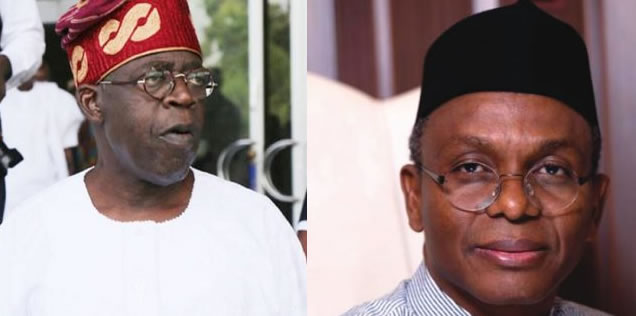The Shifting Sands of Nigerian Politics: Tinubu’s Allies Turn Against Him
As Nigeria prepares for the 2027 presidential election, the political landscape is undergoing a dramatic transformation. President Bola Tinubu, who rode to power on the wave of his “Emi lo kan” (It’s my turn) slogan, now finds himself facing a formidable challenge, not just from traditional opposition parties but also from within his own ranks. Former allies, protégés, and even those who worked behind the scenes to orchestrate his 2023 victory are now openly criticizing his leadership and policies, raising questions about his chances of re-election. This shift in allegiance highlights the fluidity of Nigerian politics and the complex interplay of personal ambitions, ideological differences, and perceived policy failures that can reshape alliances.
One of the most prominent figures to break ranks with Tinubu is Nasir El-Rufai, the former governor of Kaduna State. El-Rufai was instrumental in securing support for Tinubu’s presidential bid from northern governors within the All Progressives Congress (APC). His initial praise for Tinubu and confidence in his leadership have since turned into scathing criticism. El-Rufai left the APC in 2025, citing a divergence in values. He has since become a vocal critic of Tinubu’s government, labeling some ministers as “clowns” and accusing the administration of incompetence. El-Rufai’s disillusionment, coupled with his failed ministerial bid and the growing internal divisions within the APC, has fueled his opposition to Tinubu’s re-election, which he deems “impossible.”
Another former stalwart of Tinubu’s camp, Rauf Aregbesola, the former governor of Osun State, has also joined the opposition ranks. Their relationship, which dates back to Aregbesola’s tenure as Tinubu’s Commissioner for Works in Lagos, had been steadily deteriorating. The final breaking point came during the 2022 Osun governorship election when Aregbesola refused to support Tinubu’s nephew, Gboyega Oyetola, leading to Oyetola’s defeat. Aregbesola’s public criticism of Tinubu at the time signaled the irreparable damage to their relationship. His recent alignment with Atiku Abubakar’s coalition further underscores his commitment to opposing Tinubu’s re-election, potentially significantly impacting the 2027 electoral landscape.
Rotimi Amaechi, the former Minister of Transportation and ex-Governor of Rivers State, presents another example of a once-loyal ally now expressing dissent. Despite losing the APC presidential ticket to Tinubu, Amaechi actively campaigned for the party in 2023. However, he has since become critical of Tinubu’s economic policies, expressing concern over the hardships faced by Nigerians. Amaechi’s call for public protests against the government marks a surprising departure from his previous support for the APC and underscores the depth of his disillusionment with Tinubu’s leadership.
Abubakar Malami, the former Minister of Justice and Attorney-General, also once a staunch supporter of Tinubu, has joined the chorus of critics. Malami’s initial endorsements of Tinubu as a worthy successor to Buhari have been replaced by criticisms of the APC’s handling of the 2027 election preparations. His disapproval of the party’s internal dynamics and perceived endorsements further highlights the growing dissatisfaction within the APC ranks.
Babachir Lawal, a former Secretary to the Government of the Federation, represents another significant figure who has withdrawn his support for Tinubu. Lawal’s initial reservations stemmed from the APC’s Muslim-Muslim ticket in 2023. He has since become increasingly critical of Tinubu’s government, citing concerns about insecurity, economic hardship, and perceived favoritism. Lawal’s active involvement in opposition planning for the 2027 elections solidifies his break with Tinubu and further complicates the President’s path to re-election.
These instances of former allies turning against Tinubu paint a picture of a presidency facing mounting challenges. The defections and criticisms underscore the fragility of political alliances in Nigeria and the potential for shifting loyalties to reshape the political landscape. The 2027 election promises to be a highly contested affair, with Tinubu facing opposition not only from traditional rivals but also from a growing contingent of former supporters who have become disillusioned with his leadership. The outcome of this election will depend, in large part, on how Tinubu navigates these internal challenges and addresses the concerns raised by his critics. His ability to regain the trust and support of these former allies could prove crucial to his chances of securing a second term. The unfolding political drama in Nigeria serves as a reminder of the dynamic nature of power and the constant need for political leaders to adapt to the changing tides of public opinion and internal party dynamics.


